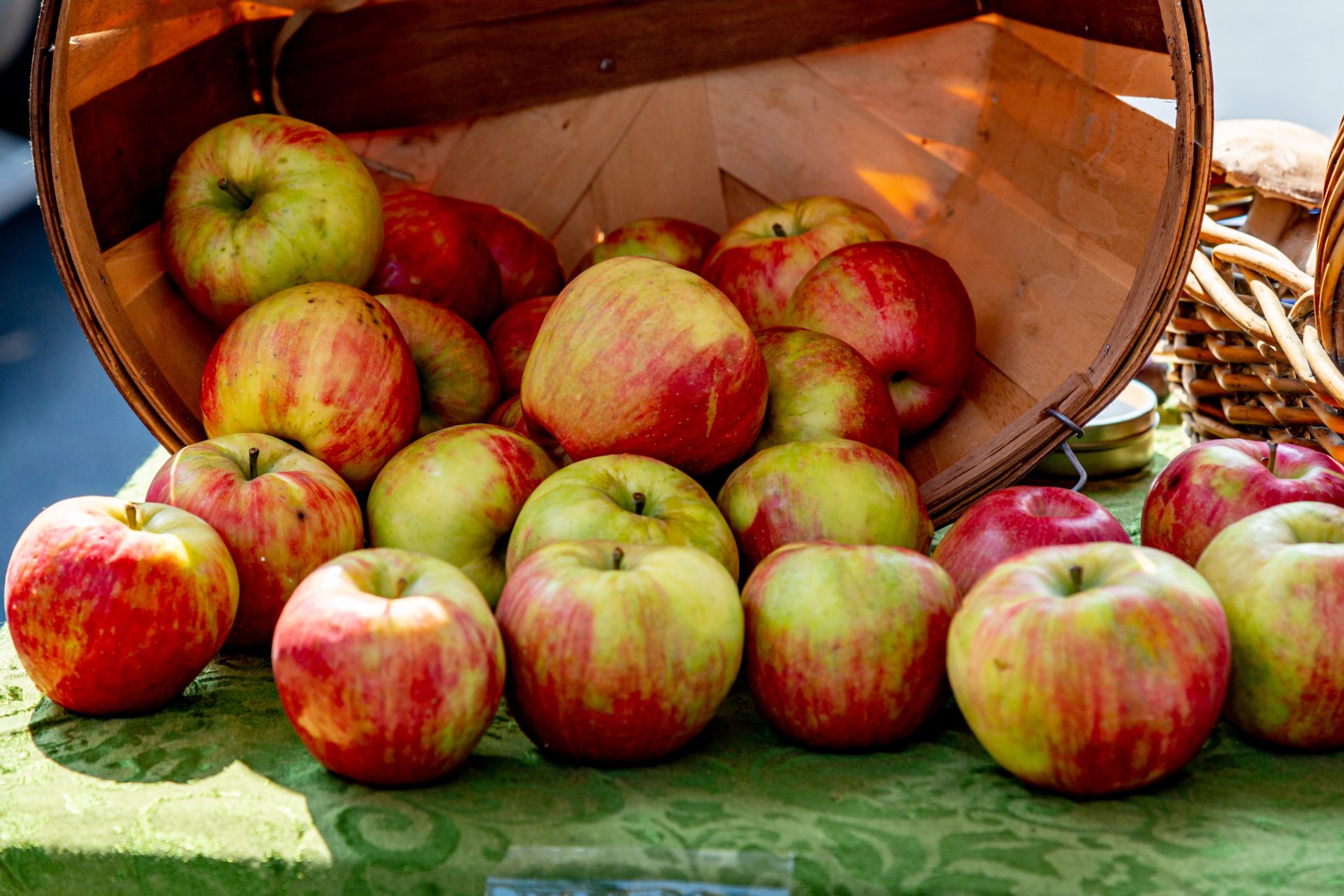All you have to do is walk through the orchards of our regions to realize that apple picking has begun. Varieties of this fruit will invade our markets and we will enjoy fresh and juicy apples, as well as pastries made from this forbidden fruit.
The little story of the apple:
This fruit finds its origin in Kazakhstan about 50 million years ago (according to a genetic analysis made in 2010). In Europe, it has been consumed since the Neolithic period. It is the most widely grown fruit in the world. Over the centuries, Humans have cultivated and selected apples meticulously. A long and rigorous work is required to cross several species. This work allows us today to have varieties adapted to raw consumption. Other types of apples develop their taste while being cooked or by entering the cider making process.
Conservation:
On the conservation side, by crossing some varieties of apples with others, we obtained apples that can be held through winter without any problems without requiring any chemical process. They should be placed in a wooden crate without touching each other, then placed in a dark, dry and cool place, such as a cellar. The best apples to keep as described are “Boskoop’s Belle”, “Golden” and “Reine Grise of Canada”. On the other hand, some apples, such as “Jonagold” or Summered for example, must be eaten shortly after picking so that we can enjoy all their flavors.
The different types of apples:
There are a few thousand types of apples in the world according to Passeport Santé. A lot of documents say that “apples are the favourite fruit of Swiss people”. According to an article in the newspaper Le Temps, 2500 varieties of apples are grown in Switzerland. From the subtle Golden to the Granny Smith(an apple that firm and tasty), there is every thing one might desire! But how do we find our way around all these varieties of apples? How do you know which one to choose for a pastryrecipe and which one for a snack ? We invite you to take a look at the most common apples in Switzerland.
Boskoop: discovered in 1856, it has a sweet and sour taste. Some people who appreciate its strong taste eat it raw. As the flesh of the fruit breaks up during cooking, it is ideal for compotes. It can be found on markets from September to May.
Breaburn: discovered in 1950, it is particularly rich in vitamin C, which causes it to become brownish (when being in contact with air) less quickly. Harvested from October to June, it is almost exclusively used for pastry.
Cox Orange: created by Mr. Cox in 1825, it has the particularity of having a slightly spicy, firm and juicy flesh at the same time. Enjoy it from September to February!
Diwa: Several testes over several years were necessary to create this juicy apple with a lovely fruity flavour. Suitable for both cooking and fresh consumption, it can be enjoyed from October to June.
Elstar: 1955 is the year this aromatic apple first appeared. It is more appreciated fresh than cooked because its flesh is crunchy. It is available from September to March.
Gala: it entered the market in 1934. Very sweet and not very acidic, it is appreciated by the youngest among us. If you have any little kids at home, there you go! This makes the perfect snack for healthy children!
Golden Delicious: it is the most widely grown apple in Europe despite the fact that it was discovered in the USA. It is particularly used for baby compotes.It is naturally sweet and no sugar is needed when preparing a compote. Why say no to something better for your health? Refined sugar makes the metabolism weaker and more vulnerable to infections, especially respiratory infections.
Granny Smith: As its name suggests, this variety is the result of a particularly lucky elderly Australian woman: Maria Ann Smith. Excellent to eat raw! But take care, it is quite acid. It is also appreciated in salads.
Jazz*: after several crosses, this juicy apple with a sweet-acid taste appeared. It is protected by trademark law and is harvested from the end of September. It is suitable for all uses. It is served from October to June.
Reinette du Canada: already known since 1771, the flesh is tender and sour but can become floury with time. It is undoubtedly a kitchen apple.
Pink Lady*: it is a variety known as protected by trademark law. Its flesh is juicy, firm and slightly acidic. We can find it from December to June.
Primerouge: this variety comes from Japan. It is picked between the end of August and the beginning of September. Its flesh is not very juicy but acidic and finely perfumed. It is especially suitable for fresh consumption for a short period, between August and September.
Rubinette: We owe its discovery to a Swiss man, Mr Walter Hauenstein. Always well placed during flavour competitions, it is predestined for fresh consumption.
*Protected by trademark law means being protected by trademarks sometimes registered by producers or “marketers” who then have the exclusive right not only to produce these apples but also to put them on the market. This leads to higher investments, licences for producers and marketing costs for intermediaries, but also higher profits.

The benefits of apples:
Among all these you will necessarily find one that you will like. In addition, The apple is excellent for your health!
According to Health line, it is rich in antioxidants and vitamins (A, B1, B2 , C and PP) which support the immune system, energy production, and the functioning of the nervous system. To ensure that your body absorbs these vitamins as well as possible, drinking fresh apple juice is highly recommended. Before putting your apples in a juice extractor, choose organic apples and leave the skin on because it contains more vitamins. Too many apples are left on the shelves or peeled because the skin is not beautiful “We are suspicious of stains or bumps, yet it is a sign that the fruit is alive, not too much tampered with” says Françoise Minarro, nutritionist and Greenpeace spokesperson.











What do you think?